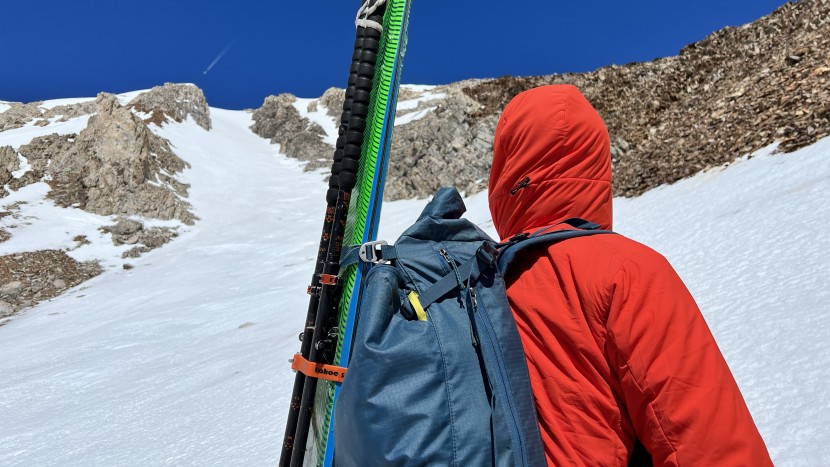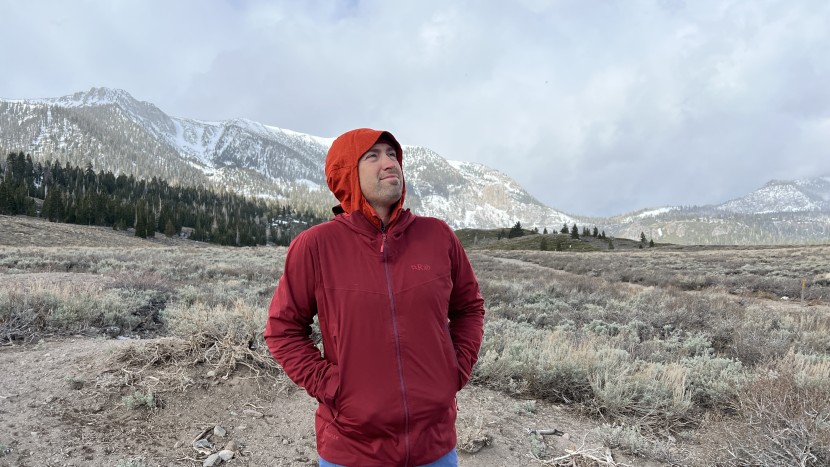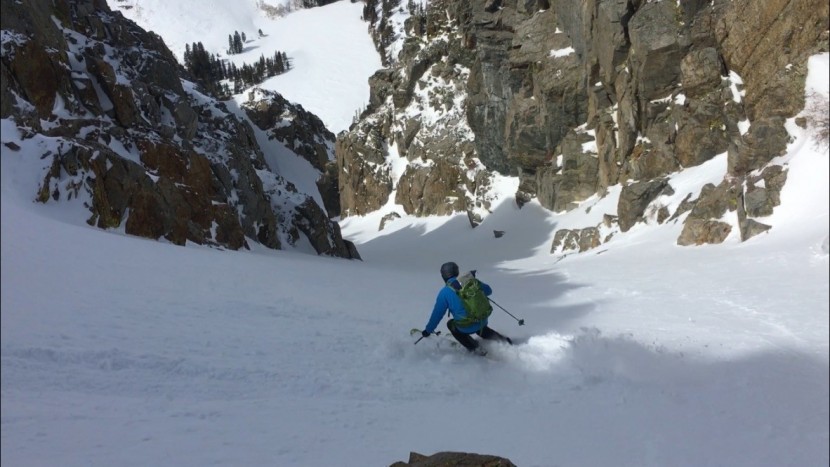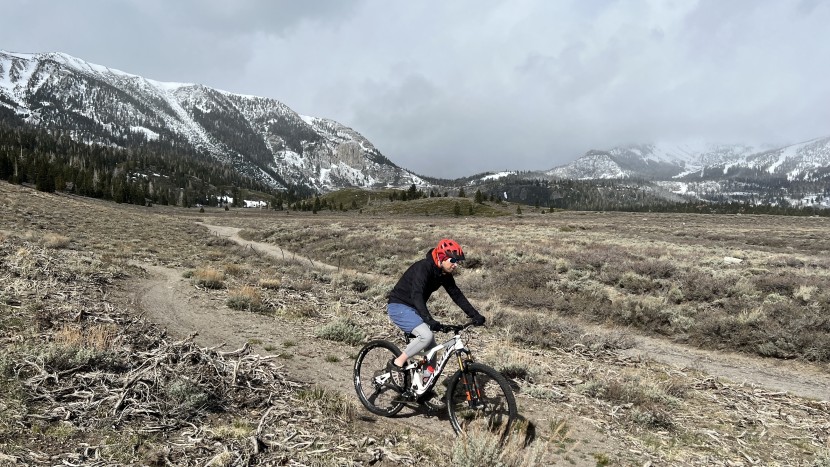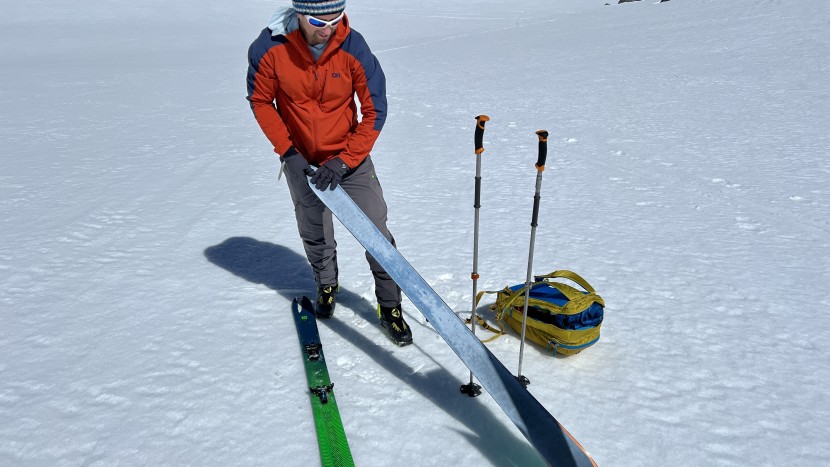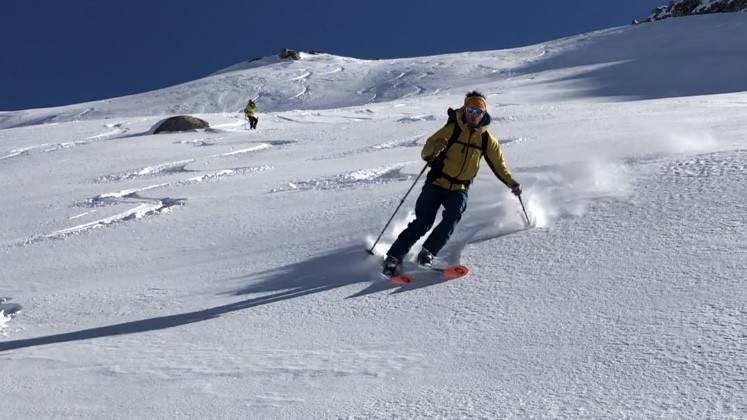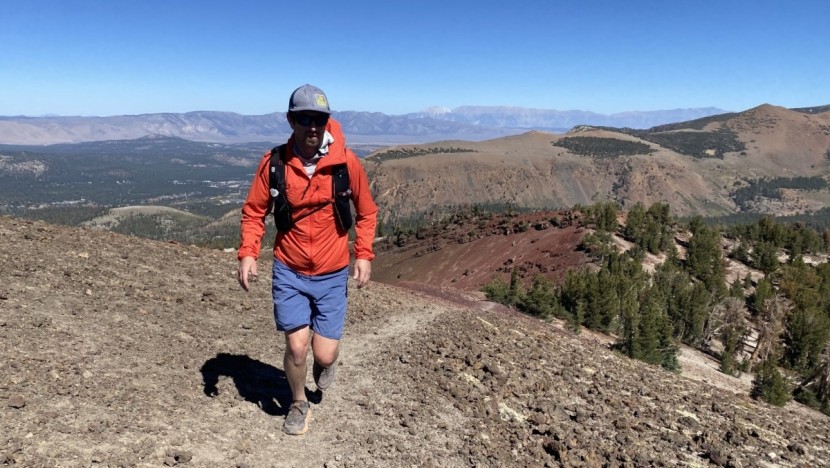Testing has occurred over several seasons of use in the Sierra Nevada mountains of California, the North Cascades in Washington, and the Coast and Interior Ranges of British Columbia. Our goal is to test in as many conditions as we can, finding harsh mountain conditions to be an excellent indicator of weather protection, and we test while hiking, climbing, skiing, and running to gauge how well the jackets can move and breathe. We also investigate the weight and features of each layer. Our exhaustive testing process includes real-world use and more objective lab testing to provide you with the most comprehensive reviews possible.
Weather Protection
To assess the weather protection of each jacket, we sought out inclement weather conditions wherever possible. We spent weeks with each option in variable mountain conditions, from icy alpine climbs to backpacking trips plagued with afternoon thunderstorms. We also used a shower test for some serious water-resistance testing. This involved putting on a long-sleeved sun hoody underneath the softshell and getting into the shower, at full blast, for one minute to see how much water leaked through each jacket. To be objective in our scoring, we measured the surface area of the underlayer's wet spots.
Breathability
We wore these jackets on a variety of activities, from casual day hikes to enduro mountain bike rides with lots of huffing and puffing. We collected extensive data on the ability of each softshell to breathe and correlated those findings with other reviewer's feedback. We also performed a 45-minute cardio circuit with each softshell. For each round, we wore a fresh/dry underlayer and measured the total surface area of sweat spots at the end of the circuit. Each time we carried out the cardio circuit, we also ensured the ambient air temperatures were similar.
Mobility
We tested mobility by spending weeks in each jacket while enjoying a variety of activities and taking detailed notes along the way regarding any restriction in movement. We also examined the amount of fabric bunching each option had, noting how much the bunching got in the way. Lastly, we took standardized measurements while reaching overhead to see how high the hem rose, also looking at the wrist cuff drop.
Weight
Using our scale, we simply weighed each one of the jackets to verify them against the manufacturer's reported weights. We then used a weighted formula to distill our findings into a 1-10 score.
Versatility
We examined each layer's ability to be used across multiple seasons, activities, and climates. We also took a deep dive into each option's ability to be layered over or under other garments. To be more accurate with our layering size assessment, we tried the same base layers and outer layers with each softshell.
In assessing versatility, we also consider style. We put on each jacket, stood in front of the mirror, and asked ourselves, “How amazing do I look right now?!” OK, so maybe that isn't exactly how we did it, but we did consider the fit of the jacket, how baggy or trim-fitting it felt, the available colors, the casual or athletic design, and the “in-town vs. on trail” look. Style is largely subjective, so we tried to give as much information as possible so you can make this decision for yourself.
As seen in our photos, we used the jackets for rock climbing, downhill skiing, hiking, rock climbing, alpine climbing, biking, and around town. We were intentionally rough on these jackets and scraped them against rocks and brush whenever we had the chance. One tester even jumped into a freezing waterfall to compare water resistance! We had a lot of fun testing this round of jackets, and we hope you find our review informative and helpful in choosing the best jacket for you.

